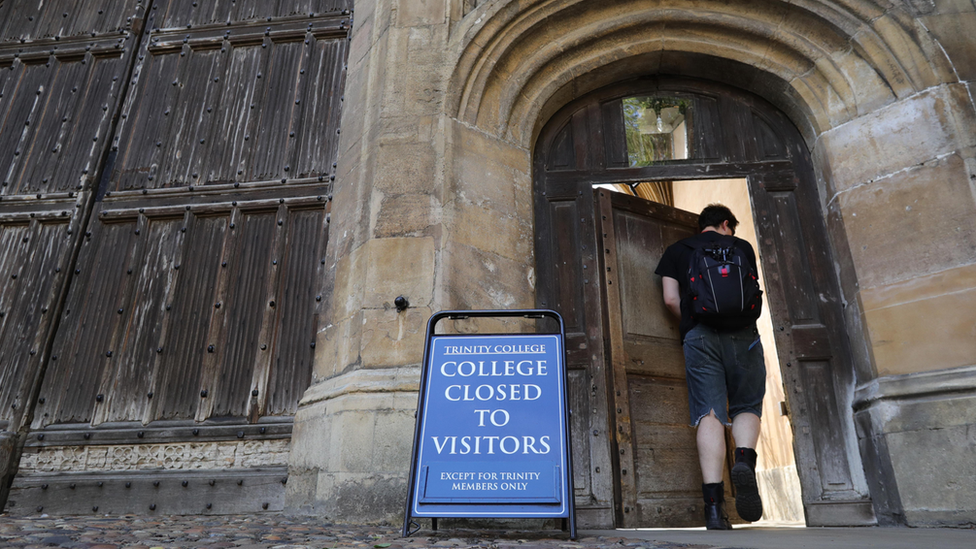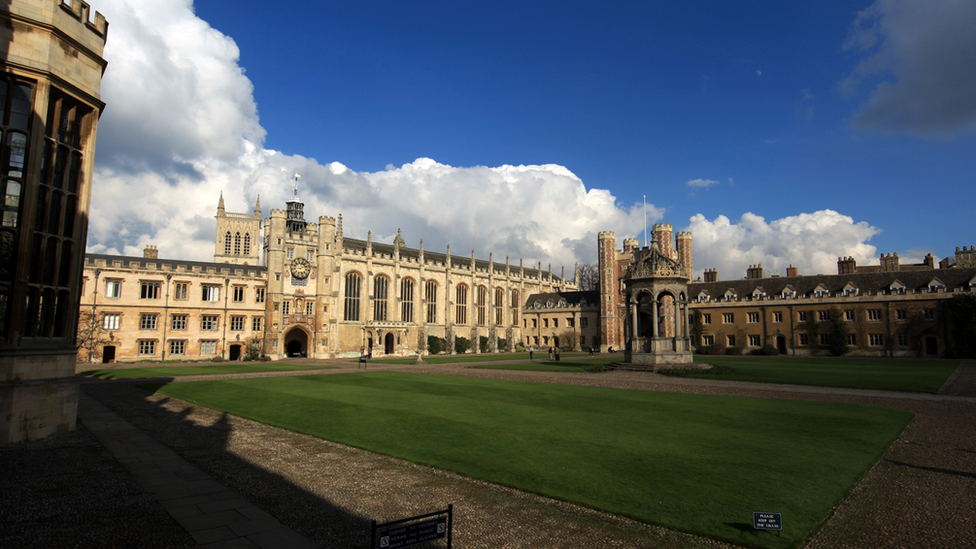Concerns over Cambridge University fitness to study hearings raised
- Published

The university has been reviewing the deaths of students since March
Concerns over Cambridge University's fitness to study process, described as being like "on trial", were raised in reviews after six students died.
Two of the deaths, between March and September, were confirmed as suicide, with four suspected as such.
In public health meetings about the deaths, fears were raised over the relationship between suicide attempts and the process, the minutes show.
The university said it was unable to comment because of ongoing inquests.
Prior to the deaths, the university's mental health services - which are separate from the fitness to study process - were branded "ineffective", "untargeted" and "unsustainable" by an external reviewer it appointed.
Last year the BBC was contacted by former and current Cambridge students with experiences of those services, whose concerns included fitness to study hearings, which determine whether a student should suspend their studies.
They said none of the procedure's panel deciding upon their futures were mental health specialists, with one student stating they "felt like probation hearings, like I was on trial, talking to complete strangers about stuff I hadn't properly unpacked with a therapist yet".
It is not known whether the students who died had gone through the fitness to study process or how many had used the university's mental health services.
If you are feeling emotionally distressed, help and support is available via BBC Action Line

The university's head of student support said it had "invested significantly more resources" to help students
The university and local public health bodies held meetings to review the deaths, and in minutes obtained by the BBC through the Freedom of Information Act (FOI) there were concerns raised "about near misses or attempts, and their relation to student fitness to study policy and processes".
In a meeting after the first four deaths, the minutes noted "there were no obvious common factors among all four cases", but five "themes" were identified which were redacted in the response to the BBC, with similar themes identified after the fifth death.
But the "system learning" included a question over how university support services were connected to external mental health services.
It also included questions over how to support staff to "keep student population safe" and how to communicate "more effectively" with out-of-area services for continuity of care.
During the first meeting on 31 May in a section called "update on university communications team response", the minutes stated an individual "encouraged caution around the content of emails on this subject, in case of FOI requests".
Last year, Natalie Acton, head of student support, said the university had "invested significantly more resources in student support", had increased the number of counsellors and said any student who referred themselves for counselling would be seen within 10 working days.
In December, the inquest of one of those who died, Trinity College maths student Alexander Horner, heard he took his own life having been "unable to cope" with his undiagnosed chronic pain.
Earlier in the year, the inquest of a history student heard there was "absolutely no indication that he was struggling".
Further inquests are due to take place later this year.

Find BBC News: East of England on Facebook, external, Instagram, external and Twitter, external. If you have a story suggestion email eastofenglandnews@bbc.co.uk, external
Related topics
- Published5 December 2022

- Published9 August 2022

- Published11 July 2022

- Published18 January 2022
